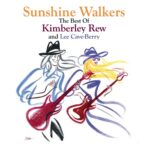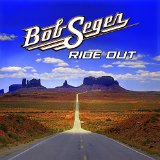 I have a huge admiration for great songwriters; crafting songs that perfectly convey little slices of life or eternal truths without knowing whether the song will reach half a dozen or millions of people or whether it will hibernate for years and emerge as a shiny (and profitable) hit. Nick Lowe was virtually potless after having a string of hits in the late seventies/early eighties when “(What’s So Funny ‘Bout) Peace, Love and Understanding?” appeared on the soundtrack of “The Bodyguard” as a Curtis Stigers cover in 1992. Kimberley Rew’s career took a slightly different trajectory; as a member of Katrina and the Waves, after several years grinding around Air Force bases and Canadian Clubs, he wrote the massive hit “Walking on Sunshine” and Eurovision winner “Love Shine a Light”, and The Bangles had a minor hit with a cover of his song “Going Down to Liverpool”.
I have a huge admiration for great songwriters; crafting songs that perfectly convey little slices of life or eternal truths without knowing whether the song will reach half a dozen or millions of people or whether it will hibernate for years and emerge as a shiny (and profitable) hit. Nick Lowe was virtually potless after having a string of hits in the late seventies/early eighties when “(What’s So Funny ‘Bout) Peace, Love and Understanding?” appeared on the soundtrack of “The Bodyguard” as a Curtis Stigers cover in 1992. Kimberley Rew’s career took a slightly different trajectory; as a member of Katrina and the Waves, after several years grinding around Air Force bases and Canadian Clubs, he wrote the massive hit “Walking on Sunshine” and Eurovision winner “Love Shine a Light”, and The Bangles had a minor hit with a cover of his song “Going Down to Liverpool”.
After Katrina’s departure in 1999, Kimberley carried on writing and recording with his partner and bass player Lee Cave-Berry. The songs were still superb, but weren’t troubling the charts; this is the period covered by the twenty-one (count them, twenty-one) songs on “Sunshine Walkers”.
Kimberley Rew is a very English lyricist, in the same vein as Ray Davies, Nick Lowe, Chris Difford and Billy Bragg; the songs couldn’t come from another country; there’s a self-deprecation and irony that you don’t find anywhere else. The other thing he has in common with these writers is that they can all conjure great songs out of the most prosaic situations: Chris Difford wrote the lyrics for the Squeeze classic, “Tempted”, on a journey to Heathrow.
And so it goes, on the album’s first song, “The Dog Song”, inspired by seeing dogs on an obstacle course for TV entertainment, is a romp through Chuck Berry territory with humorous lyrics, clever rhymes and perfect harmonies. It gets the album off to a flying start and sets the tone for a bunch of songs covering various musical styles and even a couple of those songwriters’ favourites for occasions that recur annually, “All I Want is You for Christmas” and “Happy Anniversary”.
Of the remaining dozen and a half songs, there’s absolutely no filler and several that push all of my buttons, mainly the quintessentially English ones. “Bloody Old England” is Billy Bragg meets Victor Meldrew homesickness for this grey old country set to a skiffle beat, while the national pride and clever rhymes of “English Road” wouldn’t have sounded out of place on an eighties Rockpile album. And let’s not forget “Backing Singer Blues”; I’m not a great fan of the humorous song, but this one actually works. It slightly exaggerates a situation everyone in the business can identify with, and it’s catchy as all hell.
It’s not often that an album can grab my butterfly attention span for twenty-one songs, but “Sunshine Walkers” did it; Kimberley Rew is one of our national treasures whose talents deserve much more exposure.
“Sunshine Walkers” is out now on KL Recording (KL013).
 “Twang”; simple, it does what it says on the tin. OK, front cover, but you know what I mean and, actually, it does quite a lot more than it says on the tin. The twang is certainly present, but there’s a lot more to this album than Dick Dale influences. “Twang” is much more than surf or surf-punk. James Oliver pulls in many more guitar influences including Elmore James, Chuck Berry, Link Wray, Mick Green, Wilko Johnson and George Thorogood. And that’s before we even mention the legendary Dave Edmunds, whose collaborator Paul Riley mixed “Twang”. If you want another Welsh guitar connection, James is from Blackwood, home of the Manic Street Preachers – all part of the service.
“Twang”; simple, it does what it says on the tin. OK, front cover, but you know what I mean and, actually, it does quite a lot more than it says on the tin. The twang is certainly present, but there’s a lot more to this album than Dick Dale influences. “Twang” is much more than surf or surf-punk. James Oliver pulls in many more guitar influences including Elmore James, Chuck Berry, Link Wray, Mick Green, Wilko Johnson and George Thorogood. And that’s before we even mention the legendary Dave Edmunds, whose collaborator Paul Riley mixed “Twang”. If you want another Welsh guitar connection, James is from Blackwood, home of the Manic Street Preachers – all part of the service.
The album’s opener, “American Cars”, is a humorous swipe at the role of the car in rock ‘n’ roll music and the conspicuous absence of the American models in the Welsh Valleys, in a similar vein to Billy Bragg’s “A13, Trunk Road to the Sea”, but with more guitar; loads more guitar and plenty of piano as well. It sets the scene for the album; the musicianship is cracking, it’s one hundred miles per hour and there’s a lot of humour running through it.
Did someone mention Link Wray? The instrumental, “The Missing Link” is the surf equivalent of Stevie Ray Vaughan’s version of “Little Wing” as James runs through the various techniques of surf guitar, demonstrating his complete mastery of the genre (and more besides); and just like SRV’s piece, it’s a masterclass.
There are a couple of Big Joe Turner covers, “TV Mama” and “Honey Hush”, where James pulls in a few other references as well; “TV Mama” hints at Dave Edmunds’ 1970 No. 1 cover of the Dave Bartholomew classic “I Hear You Knocking”, while “Honey Hush” hints at a Phil Spector production, which Dave Edmunds also emulated for a while in the early seventies.
The James Oliver Band is much more than a simplistic tribute to sixties surf music. The stylings are complex; there are multiple tempo and rhythm changes throughout, particularly on “The Missing Link” and “Clean House” and the album’s closer, the Dick Dale classic “Misirlou” winds down with a bottom E string being gradually de-tensioned as the tune winds to a close. These are all examples of a musician with technical expertise and a clinical understanding of how a song is put together.
With the death of Cavan Grogan earlier this, maybe it’s time for James Oliver to make his breakthrough; after all, sixty-five years down the line all Chuck’s children are still out there playing his licks.
“Twang” is out now via The Last Music Company (2REV101).
Here’s a little video clip for you as well:
 There’s one thing you can say about a Bob Seger album; you know what you’re going to get. What you get is Bob’s gravelly, lived-in voice, a couple of out-and-out rockers, probably a couple of ballads, a couple of mid-tempo anthems, a cover or two (carefully chosen to sound like they could have been written by Bob himself) and maybe something a little bit funky as well. You would expect nostalgic and maybe wistful lyrics about growing up in the Midwest in the sixties, or life on the road and fairly standard rock arrangements spritzed up by a bit of sax and maybe some tasteful Bill Payne piano. So you would expect what is probably his final studio album to be a bit more of the same, and you would be perfectly happy at that.
There’s one thing you can say about a Bob Seger album; you know what you’re going to get. What you get is Bob’s gravelly, lived-in voice, a couple of out-and-out rockers, probably a couple of ballads, a couple of mid-tempo anthems, a cover or two (carefully chosen to sound like they could have been written by Bob himself) and maybe something a little bit funky as well. You would expect nostalgic and maybe wistful lyrics about growing up in the Midwest in the sixties, or life on the road and fairly standard rock arrangements spritzed up by a bit of sax and maybe some tasteful Bill Payne piano. So you would expect what is probably his final studio album to be a bit more of the same, and you would be perfectly happy at that.
Well, “Ride Out” looks like a Bob Seger album and from the opening track, John Hiatt’s “Detroit Made”, it sounds like a Bob Seger album. He’s always been keen on a good rocker to start the proceedings; “Get out of Denver”, “Rock and Roll never Forgets” and “Hollywood Nights” are all opening tracks on “Seven”, Night Moves” and “Stranger in Town” respectively and his romp through Hiatt’s song is right in the comfort zone. “Hey Gipsy” is a straight Chicago blues with guitar and bass playing in unison; it’s a bit of fun but it’s a bit of a departure because, despite the blues influences, you don’t often hear a straight blues on a Bob Seger album.
The cover of Steve Earle’s “The Devil’s Right Hand” is where things start to move out of established Seger territory. It has an Americana/roots feel with some lovely 12-string guitar and Earle’s use of half-line repetitions lends the song a very traditional feel. Bob has had a reputation for solidarity with blue–collar workers in the past but has usually avoided overt political lyrics (certainly during his peak period), so “Ride Out” comes as a surprise with its stabs at the media, high finance and politicians, over a chugging beat punctuated by discordant four-piece horn fills. What comes next is a real surprise; it’s a cover of Australian country stars Shane Nicholson and Kasey Chambers’ “Adam and Eve”; the arrangement is pure dustbowl country with banjo, mandolin, harmonium and fiddle backing Bob and Laura Creamer’s vocal duet. It’s raw, earthy and powerful and the harmonies are superb.
If you’re not already surprised and confused, the next song was written by one of America’s most politicised songwriters; but it’s a Woody Guthrie love song taken from the Wilco/Billy Bragg “Mermaid Avenue” project which was featured on Bob’s 2013 tour. It’s a big production again with violin, Hammond and a horn section and, I know Seger diehards will probably hate this comparison, but it wouldn’t sound out of place on Springsteen’s “We Shall Overcome” album. “”It’s Your World” is another lyrical departure, tackling environmental and financial issues over a sparse piano and guitar-based arrangement; it’s powerful stuff. “All of the Roads” is classic, “Against the Wind”-style Seger, although the violin gives it a more roots feel, creating a nice counterpoint to the Hammond B3. The ballad, “You Take Me In”, a mid-tempo ballad with a fairly traditional Seger arrangement and very upfront vocal would sit perfectly on any Seger album between 1975 and 1995 and sets the scene nicely for a powerful song to close out the album.
And “Gates of Eden” is a powerful song; it’s a slow, almost funereal, revelation of a personal epiphany which builds up with strings, a full rock band and huge backing vocals to a climax before fading out on synth strings. It’s like nothing I’ve ever heard from Bob Seger and it finishes the album as perfectly as a full stop at the end of a sentence. If this is the last album of new Bob Seger material, then “Gates of Eden” is a perfect ending.
The three additional songs on the deluxe edition of the album are all Bob Seger originals. “Listen” and “Let the Rivers Run” are both personal songs, while “The Fireman’s Talkin’” addresses environmental issues again. While I understand the marketing reasons for “Deluxe” editions of albums, in this case it’s an act of vandalism; “Gates of Eden” is clearly intended as a closing song for the album (and perhaps a career) and it’s totally inappropriate to add any songs after that punctuation mark. There’s nothing wrong with the songs, but maybe an additional EP or a download would have worked better.
This is a long way from a comfortable album to keep the fans happy without rocking the boat; this is a set of songs that have the feel of an artist disregarding expectations by using traditional American musical idioms while addressing his concerns about the state of the human race in the twenty-first century before it’s too late. As much as I love Bob Seger’s work, I really wasn’t expecting that; this could be a perfect swansong.
Available on import now.


